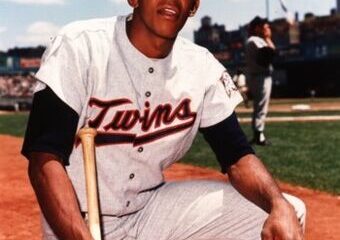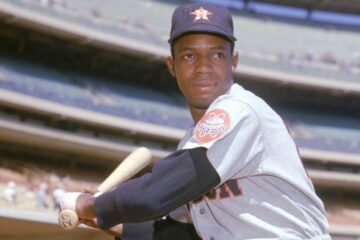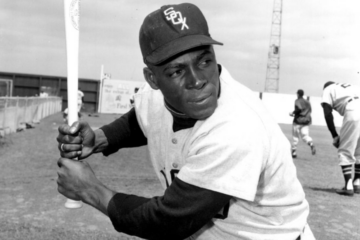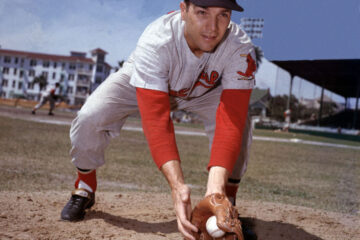The Hall of Fame Index: Who are the top five shortstops of all-time?
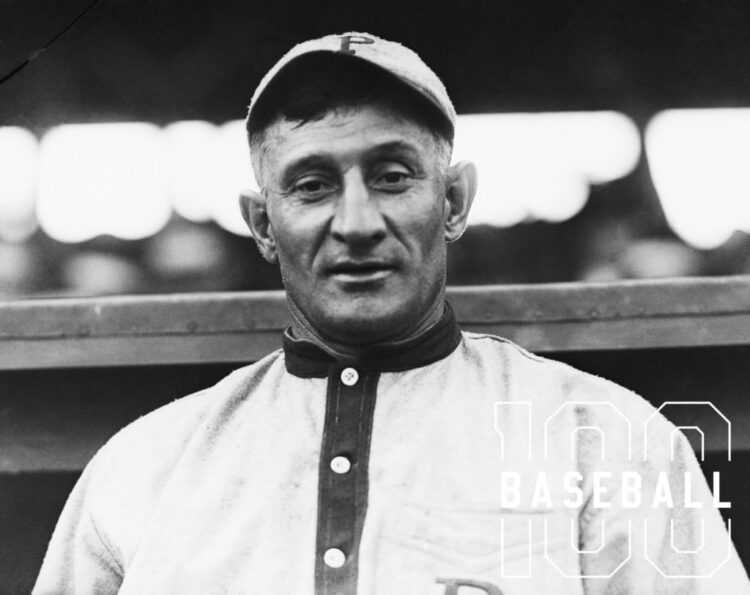
Like with our third basemen, there really is no drama as who will get the top spot amongst shortstops in the history of the game. So, we altered the headline for the article because the comments usually joke about how obvious the choice is. The Hall of Fame Index was designed to measure Hall of Fame fitness and not necessarily to rank order players. So, in order to do that we will need to add a few features to help us make up our mind.
We will also be asked to ignore certain realities for the time being. We will look at offensive, fielding, playoff, and MVP points. We will avoid any talk of PEDs in terms of analysis for the moment, but we all know that looms in the background. It will definitely come up and if we were at the sports bar it would probably dominate the conversation.
Career Value
| BWAR | FWAR | WS/5 | Total | |
| Honus Wagner | 130.8 | 138.1 | 131.0 | 399.9 |
| Alex Rodriguez | 117.5 | 113.7 | 98.2 | 329.4 |
| Cal Ripken | 95.9 | 92.5 | 85.4 | 273.8 |
| George Davis | 84.4 | 84.6 | 79.6 | 248.6 |
| Arky Vaughan | 78.0 | 72.6 | 71.2 | 221.8 |
Much like we did with Jackie Robinson, we could add some numbers for Arky Vaughan because of the seasons he missed in World War II. His career really didn’t take off following the war and he had already enjoyed his prime prior to the war. So, it is likely he wouldn’t have added a ton of value, but it might have been enough to leapfrog over Davis.
We use words like dominant and valuable because we are looking for something very specific. When you throw terms around like greatest then you end up qualifying it in any number of ways. Was Cal Ripken ever truly great? He was incredible consistent and durable, but is that the same thing as great? I suppose one could argue that durability is a skill. We all know he was elite in that department.
What the index does is artificially manufacture separation. It does this on purpose. It is designed to help us see the difference between Hall of Famers and those on the outside looking in. In a discussion like this it might not be the best tool. We will continue with peak value, but the other tests might be more instructive when looking at the difference between Wagner and Arod.
Peak Value
| BWAR | FWAR | WS/5 | Total | Index | |
| Wagner | 83.1 | 90.1 | 84.2 | 257.4 | 657.0 |
| Rodriguez | 71.1 | 78.3 | 62.4 | 211.8 | 541.2 |
| Ripken | 69.9 | 66.3 | 54.6 | 190.8 | 464.6 |
| Vaughan | 67.8 | 63.1 | 59.8 | 190.7 | 412.5 |
| Davis | 45.1 | 51.5 | 45.6 | 142.2 | 390.8 |
Baseball Prospectus used to have a metric they called WARP3. It was a multiplier to their wins above replacement player that allowed for differences in the length of schedules. It was designed to help guys like Davis that played before the standard 154 game schedule. Davis bridged the gap between the 19th and 20th century, so some of his early years had seasons where he didn’t have the full opportunity to play a full slate of games. That obviously hurts both his career and peak value. So, the index is only merely a guide in a discussion like this.
Vaughan is nearly the same as Ripken in peak value, so if we added those lost war seasons he might take over the third spot as well. Without a historical context it is impossible to answer that question intelligently. We aren’t going to give up though. We can take a look at offensive numbers, fielding numbers, playoff numbers, and BWAR MVP points to help us decide.
Offensive Numbers
| OPS+ | Rbaser | OW% | wOBA | |
| Wagner | 151 | 34 | .763 | .408 |
| Rodriguez | 140 | 56 | .684 | .395 |
| Vaughan | 136 | 12 | .696 | .399 |
| Davis | 121 | 20 | .624 | .366 |
| Ripken | 112 | -5 | .536 | .346 |
In order to understand Wagner’s greatness we have to compare him with shortstops from the same period. There is some evidence that Bill Dahlen might be as good as Davis (I’ve argued it here before and in the book), but let’s compare Wagner and Davis. Remember that Davis is a legitimate Hall of Famer and top five player at the position. Wagner still leaves him in the dust. He is the only player here with a wOBA over .400 despite spending his entire career in the Dead Ball Era.
When we are trying to rank order guys we want to know how they did when they were at their best. So, in addition to the career numbers we also look at their peak offensive numbers. We do this by taking the same seasons that represented their peak value and simply taking the offensive numbers from those seasons. In some cases it might not represent the very best the player did, but it should approximate it.
| OPS+ | Rbaser | OW% | wOBA | |
| Wagner | 176 | 35 | .828 | .439 |
| Rodriguez | 148 | 41 | .701 | .411 |
| Vaughan | 141 | 7 | .704 | .408 |
| Davis | 131 | 16 | .665 | .400 |
| Ripken | 127 | 6 | .592 | .357 |
We use terms like valuable because it can be measured. There is a compelling case to be made for Wagner as the most valuable player of all-time. A part of value is the distance between a player and his next closest competitor. The distance between Wagner and the second best shortstop is potentially greater than the difference between a Babe Ruth and the next best right fielder. As we will see in a future article, Willie Mays and Ty Cobb are very similar in value. If we consider ARod’s chemical enhancement, this could be even greater.
On the bottom we see that Ripken is still fifth but he closes the gap considerably. So, he was legitimately good as a hitter even if he wasn’t brilliant. However, it begs the question of whether he was here because of durability or because he was legitimately better than some other shortstops that could have made the top five. In order to really decide we will have to look at the fielding numbers.
Fielding Numbers
| Rfield | DWAR | TZSS | DWS/5 | |
| Ripken | 181 | 35.7 | 176 | 27.3 |
| Davis | 146 | 24.0 | 106 | 20.0 |
| Wagner | 85 | 21.3 | 67 | 28.4 |
| Rodriguez | 23 | 10.4 | 33 | 18.7 |
| Vaughan | 21 | 12.0 | 17 | 16.0 |
I spent some time after the article on third basemen discussing fielding with a friend on social media. Grading fielding is still an inexact science and that gets magnified the further back in history we go. Was Ripken really this good? One looks at the six foot four inch frame and assumes no. He was certainly no Ozzie Smith (who was a contemporary) but who is? The question is was he really this much better than all of these guys?
This is also an area where Rodriguez actually got the shaft. Mind you, on balance he wasn’t a brilliant defender at shortstop, but he was solid to good most of the time. His partner in New York might be the least valuable defender in the Hall of Fame at any position comparatively. Yet, they chose to move ARod to third base. This killed his overall defensive value and probably cost him some wins over the course of his career.
No one is going to shed a tear for him because he likely wouldn’t have played nearly as long without the chemical enhancement. It wasn’t unusual for guys to play more than one position. Ripken finished his career at third base and the Pirates shuffled Wagner around the diamond as well. So, ARod is not completely out of place.
| Rfield | DWAR | TZSS | DWS/5 | |
| Ripken | 116 | 23.2 | 113 | 16.3 |
| Davis | 70 | 11.7 | 69 | 11.0 |
| Wagner | 51 | 11.9 | 37 | 15.3 |
| Rodriguez | 36 | 11.7 | 43 | 11.8 |
| Vaughan | 17 | 11.1 | 17 | 13.8 |
Depending on which source you believe, Ripken was head and shoulders better than these guys. If we are to believe these numbers he should have won most of the Gold Gloves at shortstop during his prime. This is particularly true since the aforementioned Smith played in the National League. He won two Gold Glove awards. I’m not going to break down each individual season, but just eyeballing the numbers above would seem to indicate that’s a bunch of crap.
This is why we use as much information as we can to make these determinations. Most of the time our perception and the numbers agree. Most people thought of ARod as above average and that turned out to be the case. No one alive saw Davis or Wagner play and very few saw Vaughan play. So, the numbers represent most of what we have to go on. Occasionally, what we remember and what really was true are entirely different things. This is especially true when we get into things like playoff performance.
Playoff Numbers
| PA | SLASH | HR | Runs | RBI | |
| Rodriguez | 330 | .259/.365/.457 | 13 | 43 | 41 |
| Ripken | 124 | .336/.411/.455 | 1 | 14 | 8 |
| Wagner | 62 | .275/.393/.373 | 0 | 6 | 9 |
| Davis | 19 | .263/.263/.421 | 0 | 4 | 6 |
| Vaughan | 3 | .500/.667/1.000 | 0 | 0 | 0 |
Dial away the steroids and consider the thing that ARod is most known for. Derek Jeter’s Yankees won a handful of titles before ARod’s arrival and won only one championship after he got there. They want to put this at ARod’s feet. He represents their underachievement. This certainly makes some sense. He won two of his three MVPs as a Yankee and yet they couldn’t seem to get over the top once they were in the playoffs.
The numbers above would seem to indicate that this label was likely unfair. True, he wasn’t brilliant in the playoffs, but we have to remember that you face a higher level of competition in the playoffs. That means better pitching. So, a .822 postseason OPS is not bad at all considering. Ripken was slightly better, but no one else (save Vaughan in three plate appearances) was better.
This is why basing anything on postseason performance is so dangerous. The difference between our perception and reality is potentially great in the playoffs. The playoffs more than the regular season are made up of moments. Those moments are burned into our collective psyche. Analysis is predicated on adding up all those moments into one mosaic. That’s hard when we remember one key at bat that didn’t help the Yankees win.
BWAR MVP Points
| Top 10 | Top 5 | MVP | PTS | |
| Wagner | 0 | 4 | 11 | 130 |
| Rodriguez | 1 | 4 | 6 | 83 |
| Vaughan | 2 | 5 | 3 | 61 |
| Ripken | 3 | 3 | 3 | 54 |
| Davis | 4 | 6 | 1 | 52 |
There are only a handful of players historically have that have ten or more BWAR MVP awards. This obviously puts Wagner in elite conversation for the spot of most valuable player of all-time. Of course, MVP awards don’t prove anything. None of these particular tests prove anything. We take them all together to come up with our best response. Wagner is clearly the most valuable shortstop of all-time and if we ignore PEDs then ARod is clearly number two.
From there we get in interesting debate. I think it is fair to argue that Vaughan at his best was more valuable than Ripken at his best, but how do we define that. Is that their very best season? Best five? Best seven? I think you get the idea. We also have to ask ourselves how good Davis would have been had he played 154 games every season rather than the schedules he had to play. He had only two seasons with 150 or more games played and that didn’t happen until he was in his thirties. What would an off 20 more games per season done to his value?
Depending on how you phrased the question, I would have taken any one of those three for the third spot all-time. All things considered I might lean towards Ripken simply because attendance is such an important part of the grade. However, give Vaughan those missing war years or Davis those missing games and you might have a very different answer.


